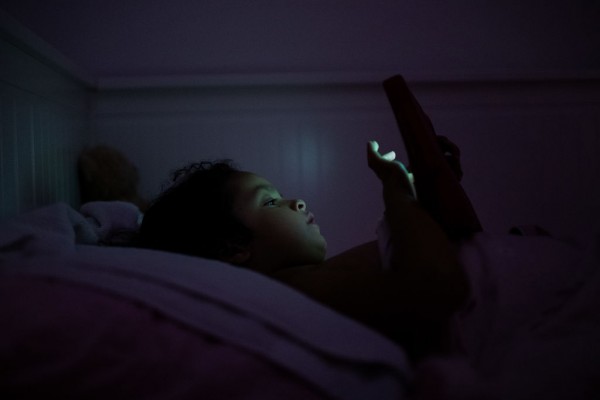Study Shows Less Sleep and More Screen Time Could Lead To Childhood Obesity

Around the globe, children of all ages are spending more time at home with parents and carers as society attempts to slow the spread of COVID-19.
A recent study suggests that children who are getting little sleep and spending more time on their mobile phones or tablets are most likely to be obese.
Researchers found that every extra hour of screen time, be it on mobile phones or tablets, children are 16 percent more likely to become overweight. According to the study, each hour less of sleep increased the risk by 23 percent.
The study authors from the Royal College of Surgeons found that there was a direct link between the increased use of the screen and reduce the time of sleep. Findings indicate that reducing the amount of time young individuals spend on electronic gadgets could help them eat better and sleep longer.
ALSO READ: Can't Survive a Day Without Your Phone? You May Be Suffering From 'Nomophobia'
Sleep Deprivation and Lack of Energy
According to the study, sleep deprivation leads to hormonal changes that control the appetite, making an individual more prone to overeating.
In addition, a lack of energy makes a person less likely to exercise and burn off the food they consume every day. More so, screen use at night sends the body signals, making it difficult for one to feel sleepy.
Individuals in their preteens need at least 10 hours of sleep a night for the healthy growth of the brain and proper physical development.
The study was presented in the 2020 European and International Conference on Obesity and followed more than 4,000 adolescents aged two to 11 years old in eight different European countries spanning from 2010 to 2014.
Time Spent on Screen and for Sleep
In the research, parents reported the amount of time their children spent on average on TV to watch; mobile phones, tablets, or computers to play games and in bed to sleep.
Research findings show that time spent on screen and duration of sleep has an inverse link, which means a reduction in one leads to an increase in the other. Relatively, the study presented that children who spent more time on screen receive less sleep.
As mentioned earlier, for each added hour spent on mobile gadgets, there was a 16 percent increased probability of obesity, and 23-percent for each additional hour lost.
Nonetheless, researchers said, since one frequently accompanied the other, the real danger could be much higher for kids.
The Ireland-based Royal College of Surgeons' Dr. Viveka Guzman, who also led the study said that sleep is frequently undervalued but is an essential part of the development of children, with a regular lack of sleep attributing to various health problems.
Their findings propose Dr. Guzman said, that sleep duration plays a role in the connection between screen time and obesity. However, a more extensive study is needed to understand further the mechanism that underlies such a link.
DON'T MISS THIS: Brain Scans of Children Hint Why Some Are Aggressive and Antisocial
Weight Gain in Children Worldwide
In a separate study that the World Cancer Research Fund conducted it was determined that increased screen time is a significant driver of weight gain in children, along with the consumption of sugary beverages. Experts claim that children who spend less time exercising and remaining seated while looking at the screens of their mobile gadgets make them more likely to eat snacks in excess.
Such a practice is also known as "passive over-consumption," which means that children are snacking on junk food they frequently see on advertisements likely broadcast on the exact devices in which they are spending most of their time.
IN CASE YOU MISSED THIS: Why Stress Makes One Overeat or Not Eat at All, and How to Overcome It
Check out more news and information on Obesity on MD News Daily.
Sep 03, 2020 07:40 AM EDT





